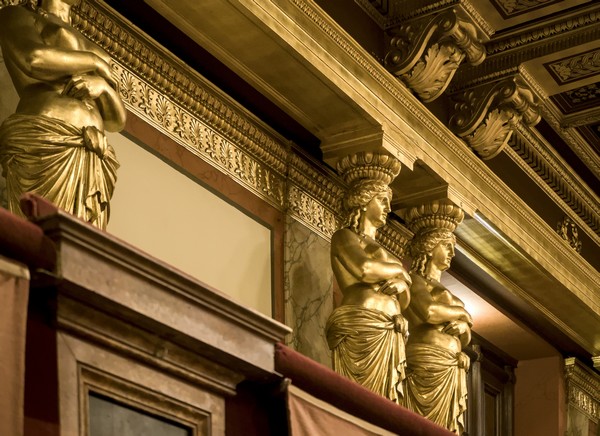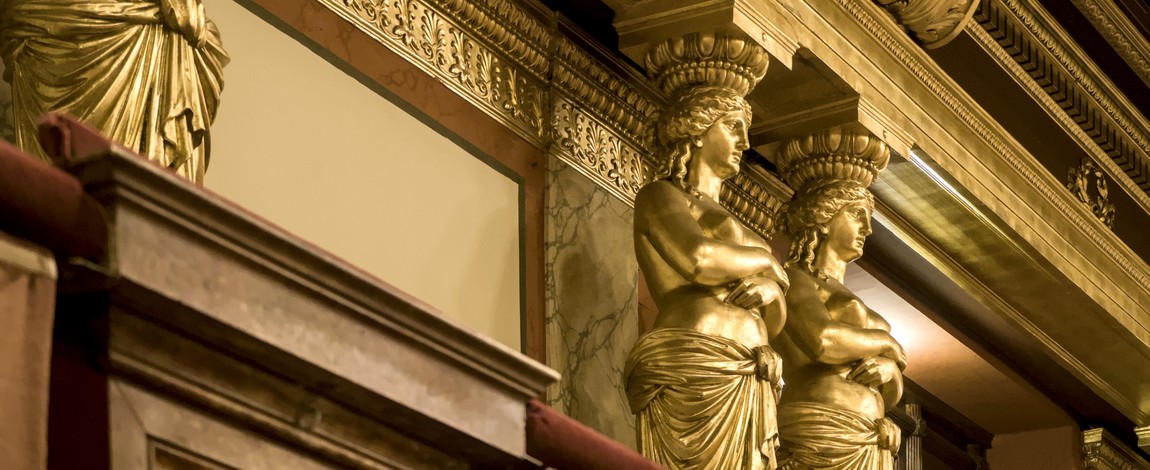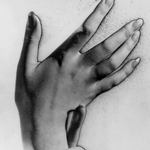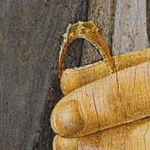
While translating the Catalan post, I'm not sure that this expression is usually used in English: “things (concerts, singers, movies…) are not just as they used to be”. We use it to joke, express irony, or complain. For example, why do so many current films last more than 200 minutes, when Hitchcock or Lubitsch created masterpieces within 90 minutes?
This week, my reflection is: premieres are not just as they used to be. Premieres of symphonic works, I mean. Sometimes, in opera houses, the premiere of a production is booed during curtain call. Some people even advance and boo during the performance, but it is typically an isolated case and the audience waits for the curtain call to express themselves. However, I have never encountered such disagreement in a symphonic concert, and let's not say it in a song recital. If the audience didn't like the work premiered, it applauded coldly and politely, stifling their yawns. But in the past... Ah, in the past! Such scandalous premieres!
A couple of months ago, I told you about the premiere of Schönberg's String Quartet No. 2. On that day in 1908, atonality appeared on stage for the first time, disconcerting a large part of the audience, and the displeasure was expressed in a very noisy way. The premieres of the works of Schönberg were often like this, but not always: for example, on 23 February 1913 the Gurrelieder were premiered at the Vienna Musikverein, conducted by Franz Schreker, and it was a big success. However, the success didn't please the composer. When he went on stage to bow, he turned his back to the hall and addressed only the orchestra, apparently upset with the audience.
It also seems that this behavior may have influenced a part of the audience who attended, a month later, on 31 March, the concert that Schönberg would direct at the same concert hall. According to the chronicles, it was evident that both supporters and detractors had mobilized. The program included three premieres: Anton Webern's Six Pieces for Orchestra, four of Zemlinsky's Maeterlinck-Lieder and two Berg's Lieder. There was also a “rerelease”, the second version, with extended instrumentation, of Schnberg's Kammersymphonie, and, finally, Mahler's Kindertotenlieder would end the concert.
The day after the concert, the Reichspost newspaper published an article titled: “Scandol at the Musikverein. A concert cut short”, while the piece from the Neue Freie Presse read: “A great riot at the Musikverein, at a concert by Arnold Schönberg.” The trouble appears to have started with Webern's piece, which was welcomed by a part of the public with laughter and whistling. Newspapers don't talk about Zemlinsky's songs, they probably were appreciated in silence, and the commotion returned with Kammersymphonie (which had already had a vociferous premiere seven years earlier). The situation became quite tense with Berg's songs. The commotion was so loud that Schönberg stopped the concert and asked those who didn't want to listen quietly to leave. He continued, but once again interrupted the music, now threatening to expel agitators by force. The third time, it was a police chief who called to order from the podium. Since the situation was uncontrolled and supporters and detractors were coming to blows (this Skandalkonzert is also known as Watschenkonzert, which would be “slapping concert”), they opted to suspend the act at that point, and the Kindertotenlieder were not performed. According to the journalist of the Neue Freie Presse, it was the best decision because “Mahler’s name was improper at that concert by Schönberg”.
Which work by Berg was the last straw? Alban Berg had been a disciple and assistant of Schönberg, and this work, composed without his guidance, was his first symphonic work. It was also a song cycle, based on texts by Peter Altenberg, whom I was talking about two weeks ago in relation to a Lied by Hanns Eisler, Und endlich (and it was then when the scandal came to mind). Berg chose the texts that Altenberg had written in five postcards that he had addressed to five women with whom he had a relationship; hence the title, Fünf Orchesterlieder nach Ansichtskarten von Peter Altenberg, Op. 4. The writer aspired “to capture an individual in a single sentence, a soul-stirring experience on a single page, a landscape in one word”. Thomas Mann admitted to falling in love with his conciseness, and the texts are a good example of that. Everything is so concise that the cycle lasts about twelve minutes, all in all. The two songs Schönberg selected for the concert didn't last three minutes. The detractors had little patience before attacking the work.
They attacked it, and they almost destroyed it. Berg, who at the time of the premiere was twenty-seven years old, was deeply upset. Because of the reaction of the audience, so angry, and also because of his former teacher, who found the songs too cryptic, and told him to continue on other paths. No wonder that the brevity must have surprised Schönberg, at a time when the trend was to take advantage of the orchestra resources to compose long and elaborate songs. It was unusual to set up an orchestra to stop it in a minute. I don't understand why Schönberg didn't make comments to Berg before the premiere.
The point is that Berg listened to him and followed a different path, that of Wozzeck and Lulu, and hardly wrote more songs. The Altenberglieder, as they are commonly referred to, remained in a drawer until long after his death (at least Altenberg, who spent some periods in a mental sanatorium, was able to enjoy the dress rehearsal). The songs were not re-released until 1952, and they were first published in 1966.
After such a long text, we will listen to a very short song, Sahst du nach dem Gewitterregen, the first of the two that were performed (or tried to perform) in that Skandalkonzert. I would say that it encourages you to continue listening to the cycle, but I wasn't at the Musikverein that day. Our performers will be Margaret Price and the London Symphony Orchestra, conducted by Claudio Abbado.
Alles rastet, blinkt und ist schöner als zuvor.
Siehe, Fraue, auch du brauchst Gewitterregen!
Please follow this link if you need an English translation
















